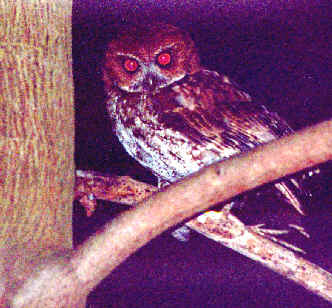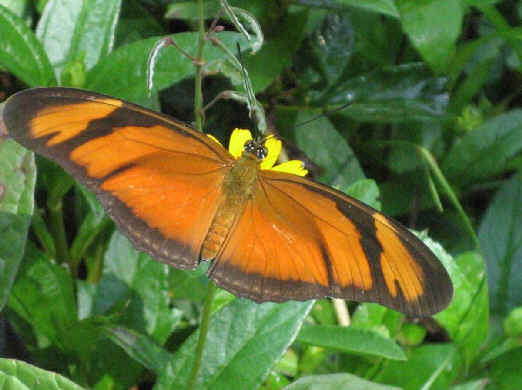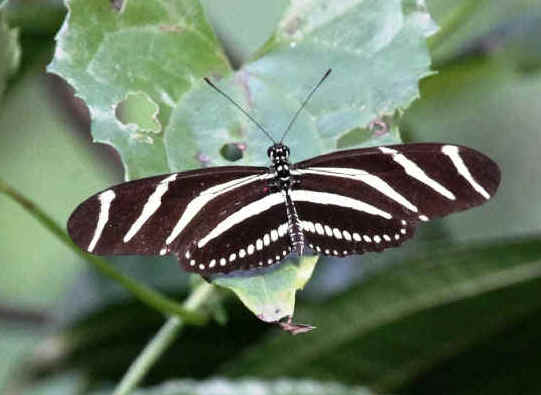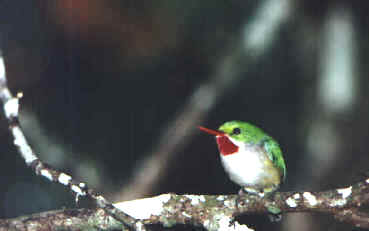
E-mail: font@focusonnature.com
Phone: Toll-free in USA 1-888-721-3555
or 302/529-1876
 |
PO
Box 9021, Wilmington, DE 19809, USA E-mail: font@focusonnature.com Phone: Toll-free in USA 1-888-721-3555 or 302/529-1876 |
A perfect get-a-way
A Focus On Nature Tour
in
PUERTO RICO
for Birds,
Butterflies
and Other Nature
February 21-26, 2016
(tour: FON/WI-2 '16)
We've been doing birding
& nature tours in Puerto Rico
for nearly 20 years.
This will be our 28th birding tour on the island.
During this tour, our objective is to see
as many as we can of the
species of endemic birds and other bird specialties,
as we enjoy the beautiful Puerto Rican countryside.
Good Birds & a Good Time!
Links:
Birds
during previous FONT tours in Puerto
Rico
A List & Photo Gallery of Caribbean Birds, in 2
Parts:
Part #1: Guineafowl
to Hummingbirds
Part
#2: Trogons to
Buntings
Rare Birds of the Caribbean, Now & in the Past
Butterflies of the Caribbean_(with some photos)
Mammals of the Caribbean (Land & Marine)
Marine Life of the Caribbean (including sea turtles, fish, corals, jellyfish, mollusks, arthropods)
Amphibians & Reptiles of the Caribbean (with some photos)
Tropical Plants of West Indian Islands, including Puerto Rico (with some photos)
Some Past Puerto Rico Tour Highlights
Itinerary
& price follows.
The "endemic birds" to Puerto Rico include a few that occur (or
formerly occurred) in the nearby Virgin Islands.
During our Puerto Rican tours we've seen
all of them.
Now, the rarest and most difficult of them to find (in the wild)
is
the
Puerto Rican Parrot. It's very rare and only in
a restricted area.
In years gone by, we've seen as many as a dozen.
And other times, less.
During all of our recent Puerto Rico tours, we've had excellent looks at the
rather elusive Elfin Woods Warbler,
a species discovered as recently as 1971.
And we've heard or seen another rarity,
the localized Puerto Rican Nightjar. That species was re-discovered in
1961.
At dusk, or after dark, we always hear the assortment of sounds made by
the Puerto Rican Screech-Owl, that we often see. (The Puerto Rican Screech Owl is in
the upper right photo.)
Other notable endemics that we see during our Puerto Rico tours include the very rare
Yellow-shouldered Blackbird, the Puerto Rican Tanager, and the Puerto Rican Lizard-Cuckoo.
To date, a cumulative
186 species of birds have been seen during the FONT Puerto Rican tours.
"Endemic butterflies" in Puerto Rico include the
Puerto Rican Yellow, Puerto Rican Harlequin (or Checkerspot),
Puerto Rican Leafwing, and Puerto Rican Calisto, and the Puerto
Rican Skipper.
These are among about 100 species of butterflies that occur in Puerto Rico.

The nominate subspecies of two
popular longwings,
the Julia & the Zebra,
both occur in Puerto Rico.
Respectively, Dryas iulia iulia,
and heliconius charitonius charitonius.

Tour starts and ends in San Juan, Puerto Rico.
Itinerary:
Sun:
Feb 21
Mid-day arrival in Puerto Rico. Travel from the San Juan area to the
southwestern corner of the island, an area rich with good birds, including a
number of the endemics. West of Ponce, before dinner, we'll have some nice
birding in the dry Guanica Forest by the coast. Adelaide's Warbler,
Mangrove Cuckoo, Puerto Rican Tody and Puerto Rican Bullfinch, as
well as the
Puerto Rican Flycatcher and Caribbean Elaenia, occur. It should be a nice start to our
birding and nature tour.
After dinner, we'll try (with hopefully the same success we've had
during previous tours) to hear and see
the rare Puerto Rican Nightjar. (This species was thought to be extinct until
1961).
During this day, butterflies that we may see would be the rare Antillean
White, the Antillean Snout, and the Cramer's
Scrub-Hairstreak.
Overnight in the attractive coastal town of
La Parguera.

Puerto Rican Tody
Mon:
Feb 22
Morning birding in the
area of La Parguera. Our prime target will be the very rare
Yellow-shouldered Blackbird
(which we've had extremely good luck finding,
often with ease,
over the years).
There will also be a visit to a place nearby that's
been good for shorebirds including
Wilson's Plover,
the Antillean race of the
Clapper Rail,
and the
colorful
Troupial.
Butterflies that we may see this day include the Puerto Rican Leafwing, Pale
Cracker, and the Dusky, or Schaus' Swallowtail.
During the afternoon, we'll begin our time in a region of wooded hills and coffee
plantations near the town of
Maricao.
Our overnight, in that nice area, will be at a parador, or
"country inn", this one very much "in the country" and quite attractive,
and located in a particularly good area for
Puerto Rican Screech-Owls.
Tue: Feb
23 Birding in the morning in the Maricao Forest, an area of wooded hills. Our most pertinent quest will
be the
Elfin Woods Warbler,
a species not known before 1971. We'll go early
to a place where we've had fine looks at the warbler during previous tours. With
good fortune, we may see there the Bridled Quail-Dove
and
Antillean Euphonia.
Endemics in
the region include
Green Mango
and
Puerto Rican Vireo.
The
mango, a
hummingbird,
is all-green. Vireo,
of course, means "I am green".
With a lot more than just green coloration, in that region is the
Puerto Rican Spindalis
(a "split" from what was the
Stripe-headed Tanager).
And also in the area is the dapper
Puerto Rican
Pewee
(another recent split).
So, not only will there be breakfast at the parador, but also some
nice birds, including the
Loggerhead Kingbird
and endemic
Puerto Rican Lizard-Cuckoo.
Butterflies that would be possible include the Puerto Rican Calisto and
Puerto Rican Yellow, both endemic, and the Two-spotted Prepona and Antillean,
or Drury's Broken-Dash. These in addition to the Malachite, that
can be common.
In the afternoon, we'll head toward the northwestern Puerto Rican coast, where
we'll overnight, by the sea, in Rincon.
Wed: Feb 24
This
morning we'll take a boat-trip offshore to observe seabirds and other marine
life. Among seabirds that we've seen during this trip in the past,
there have been as many as 6 species of Terns (including Bridled,
Sooty, Roseate, Common, Royal, & the Brown Noddy), as
many as 3 species of Boobies (Brown, Red-footed, &
Masked), as well as White-tailed Tropicbird and Black-capped
Petrel.
Among other marine life during our previous trips, we've seen various
species of dolphins and the Whale Shark.
In the afternoon, we'll travel east, across the island, to the area
of Fajardo, where we'll overnight.
Thu: Feb 25
A full-day of birding in
northeastern Puerto Rico, including a visit to a wildlife refuge near Humacao
that's good for waterbirds. The rarest of them is the West Indian
Whistling-Duck (which we've seen during many of our visits). Also
occurring there are the White-cheeked Pintail and Caribbean Coot.
We'll also visit the Luquillo National Forest,
particularly
the area of El Yunque, the rainforest, and the last haunt of the gravely
endangered Puerto Rican Parrot. This bird, though now hard to find because of
its low population, has been seen during a number of our previous tours.
Another endemic that's present in this area is the Puerto Rican Tanager.
Butterflies that can be found in northeastern Puerto Rico, in the area of El
Yunque, include the Antillean Mimic-White, Antillean Crescent,
Antillean Mapwing, Red-and-black Leafwing, and the Puerto Rican Skipper.
Overnight, again, in northeastern Puerto Rico
(or not far from the airport near San Juan).
Fri: Feb 26
Some final early morning
birding in the San Juan area (as time permits for those without early
morning flights).
Flights home from Puerto Rico.
![]()
Price: US $1,995 per person (based upon double-occupancy).
Single-supplement: $295.
Includes: All accommodations,
meals (except dinners), ground transportation on Puerto Rico, and services of the FONT birding leader.
Does not include:
Dinners. Drinks & any other items of a personal nature. Gratuities. Air transportation.
Tour to be led by Armas
Hill.
A deposit of US $400 is required to reserve a place on the tour.